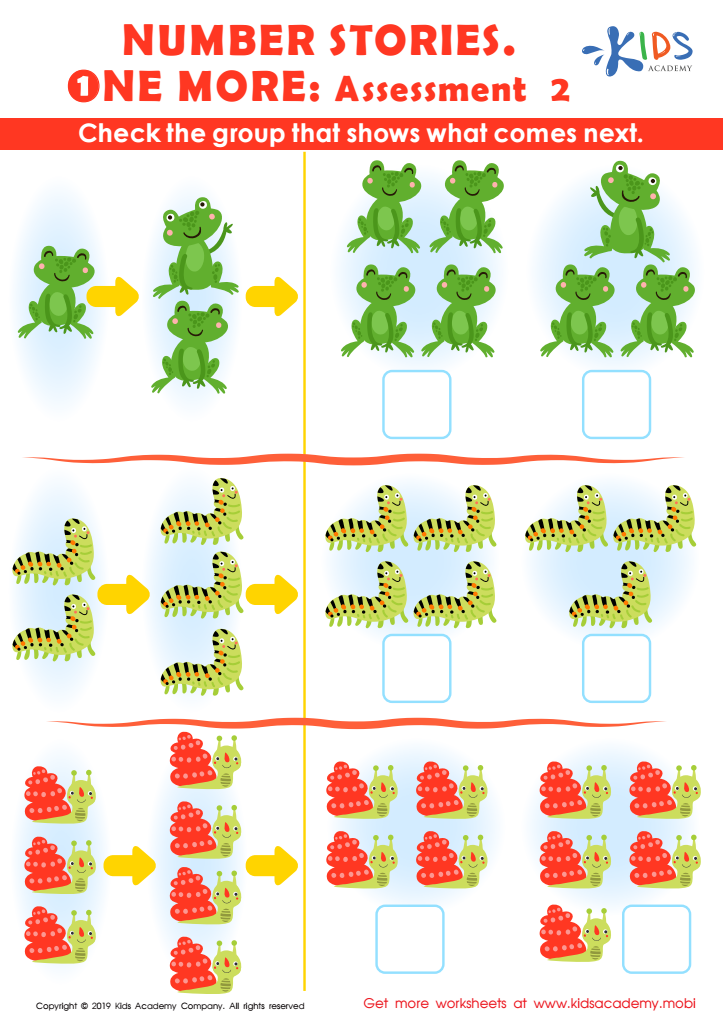Normal Counting worksheets activities for Ages 5-6
1 filtered results
-
From - To


Number Stories One More – Assessment 2 Worksheet
Normal counting worksheets activities are pivotal in the realm of early education, providing a structured pathway for young learners to grasp the foundational concept of numbers and their order. These activities serve as the cornerstone for developing numerical literacy, an essential skill that underpins all future mathematical learning. The significance of these worksheets cannot be overstated, as they offer a multitude of benefits that facilitate a child’s academic and cognitive growth.
First and foremost, normal counting worksheets activities are designed to enhance a child’s ability to recognize and understand numbers. Through repetitive practice, children become familiar with the sequence of numbers, which is critical for their ability to count confidently. This repetitive exposure helps solidify their understanding and recall of number sequences, making future mathematical tasks less daunting and more intuitive.
Moreover, these worksheets are instrumental in improving fine motor skills. As children engage with the activities, such as tracing numbers or counting objects and marking the corresponding numeral, they refine their pencil grip and control. This not only aids in their ability to write numbers clearly but also supports the development of hand-eye coordination.
Normal counting worksheets activities also foster critical thinking and problem-solving skills. Children learn to analyze patterns, compare quantities, and understand the concept of more or less. These cognitive skills are crucial for understanding more complex mathematical concepts as they progress through their educational journey.
In addition, these worksheets offer a structured yet flexible learning environment. Teachers and parents can adjust the difficulty level according to the child’s individual learning pace, ensuring that each child is both challenged and supported. This personalized approach to learning helps maintain a child’s interest and motivation, making the learning process enjoyable and effective.
In conclusion, normal counting worksheets activities are an invaluable tool in early education. They lay a solid foundation for numerical literacy, enhance motor skills, encourage critical thinking, and provide a tailored learning experience. By integrating these activities into a child’s learning routine, educators and parents can significantly contribute to their overall academic success and development.
 Assign to My Students
Assign to My Students




















